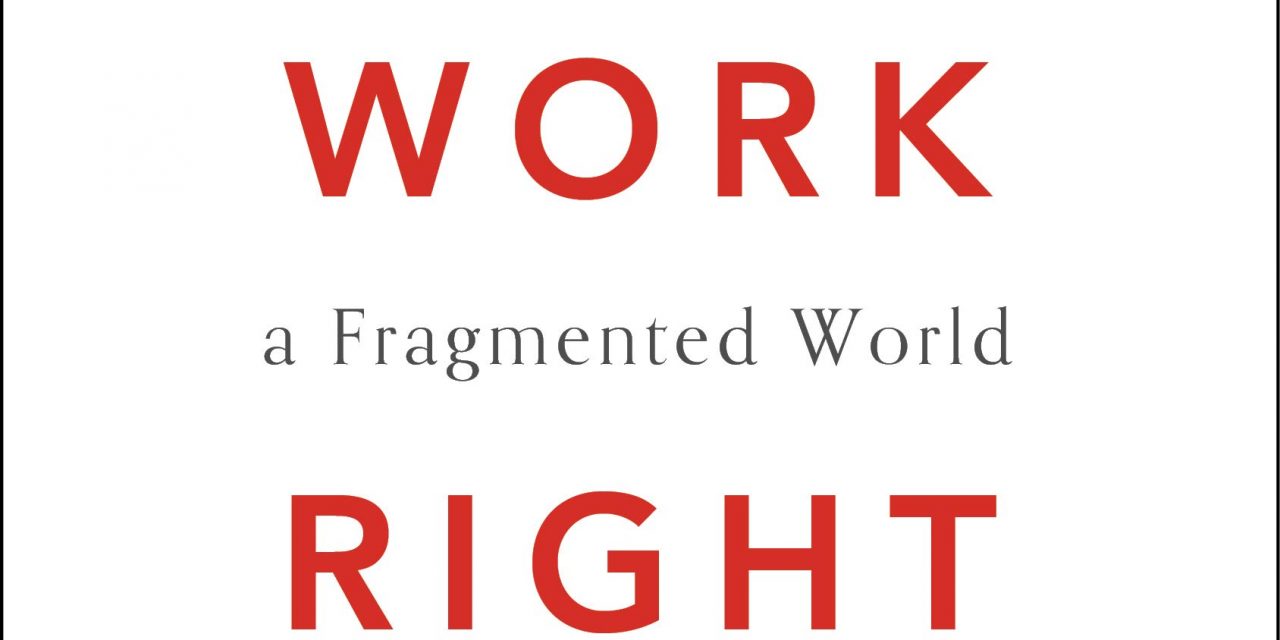This book review is scheduled to appear in the June 2020 issue of The Journal of Moral Theology.
Getting Work Right: Labor and Leisure in a Fragmented World. By Michael J. Naughton. Steubenville, Ohio: Emmaus Road Publishing, 2019. xii + 171 pages. $24.20.
Michael Naughton’s main thesis in the book can be found on page ix and reiterated on page eighteen: “if we do not get rest or leisure right, we cannot get work right…if we do not learn how to rightly integrate the posture of receiving—keeping Sunday as a day of rest, praying, living in a covenanted relationship—then we will be wounded in our efforts at achievement: work, leadership, business, and production. Unless we confront this serious error of the divided life, especially in our professional formation, we will have little chance to resist the instrumental and dehumanizing forces so present in the workplace” (18).
Throughout his work, Naughton establishes the importance not simply of balance, but of integrating one’s work and one’s leisure. On the one hand, Naughton fleshed out the idea of work according to Catholic social teaching, which takes seriously that work is not just dictated by the logic of the market, but also the logic of gift. Leisure, on the other hand, is not simply amusement or escapist entertainment, but rather is a posture of “recievement” rather than “achievement,” wherein one “lays [oneself] bare to accept what Gods wants” and “root[s] us in a contemplative life and enable[s] us to give of ourselves in our active lives” (44-45). Integrating leisure and work—where both leisure and work “inform, correct, and complement [each] other”—can be done when work is treated as a calling or vocation, and when leisure is understood as contemplation (47). In the last chapter, he also argues that “we cannot simply achieve our vocation. We need to receive it, and this is why we need Christ, the Church, and…the Sabbath.” (145) In practicing certain habits and cultivating leisure in one’s life, particularly on Sundays, Naughton’s readers will attain not just an integrated life, but better work and company performance amidst growing competition and a 24/7 work culture.
The book is written in a practical style that does not use much jargon or terminology, even though it is deeply grounded in Catholic social teaching, specifically the document the Vocation of the Business Leader. It is thus very accessible to professionals who may not necessarily be very familiar with the Catholic tradition, but who are nevertheless interested in understanding how their Catholic faith intersects with their work, as Naughton uses popular language and popular cultural examples to make his points.
Naughton’s focus on leisure is an important addition in how work is to be understood, given that leisure is understood simply as escapist entertainment, or even as a frivolous luxury that people cannot afford or bother and that has no connection to their work and to who they are. He also ends with Chick-Fil-A as an example of a company that has benefitted from setting aside Sunday as a day of leisure, which leads to possible future work on what best practices companies might be able to adapt to do something similar, especially for companies who may not be as powerful or as rich as Chick-Fil-A. This book thus further opens up the space to discuss how leisure and work come together in a person’s life and practically in the corporate setting, and for further discussion about the questions Naughton himself raises in the book: what am I working for? What am I resting in? What am I living for (21)?
STEPHANIE ANN PUEN
Fordham University




